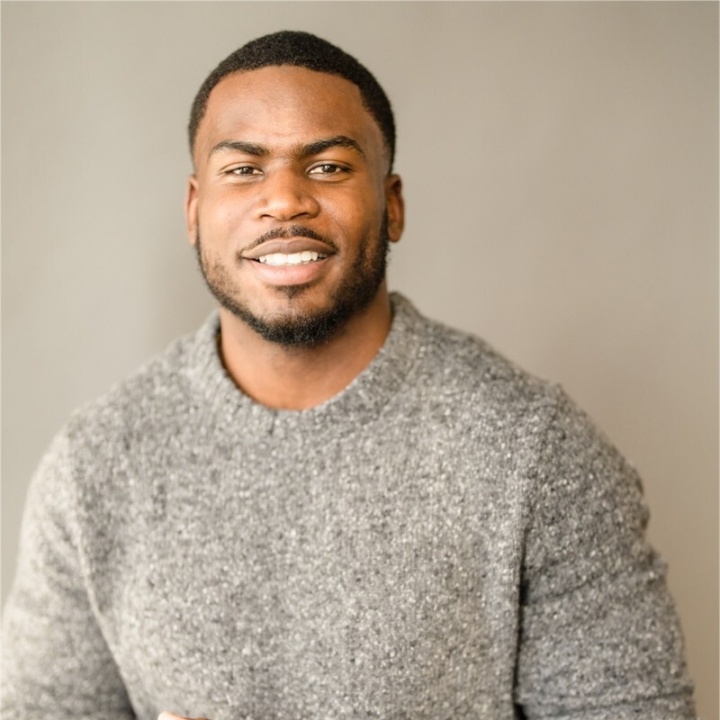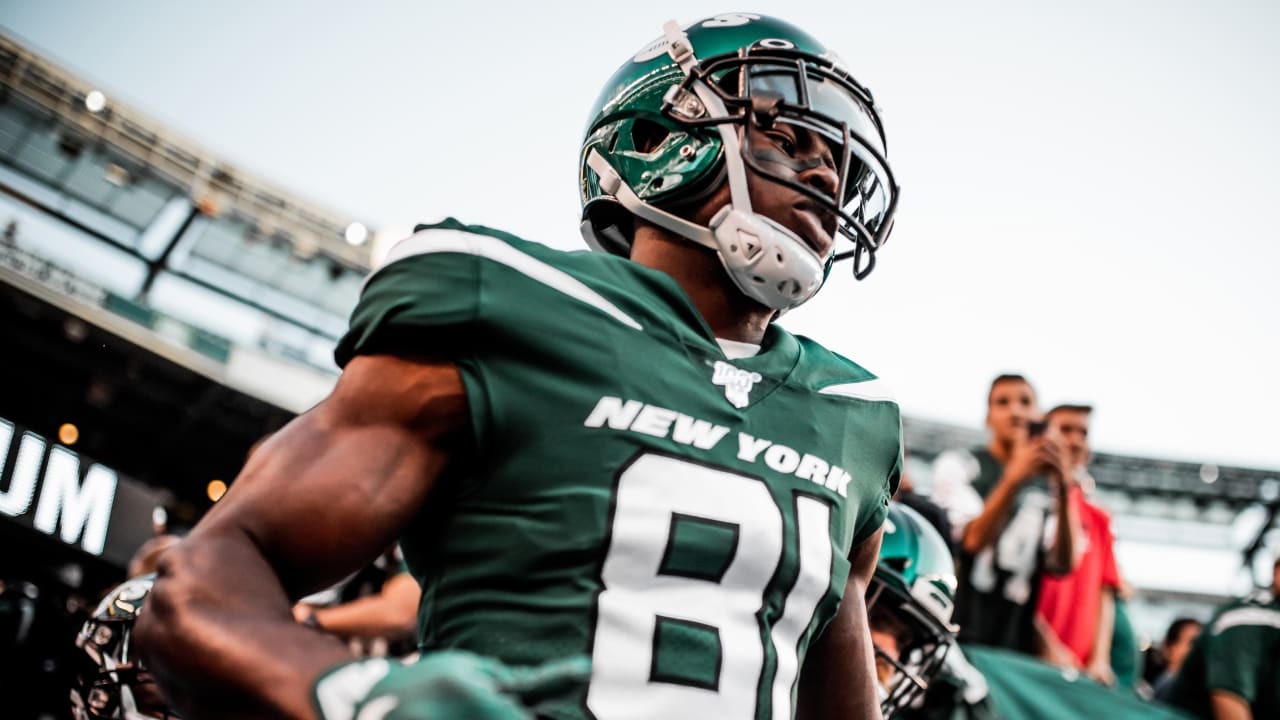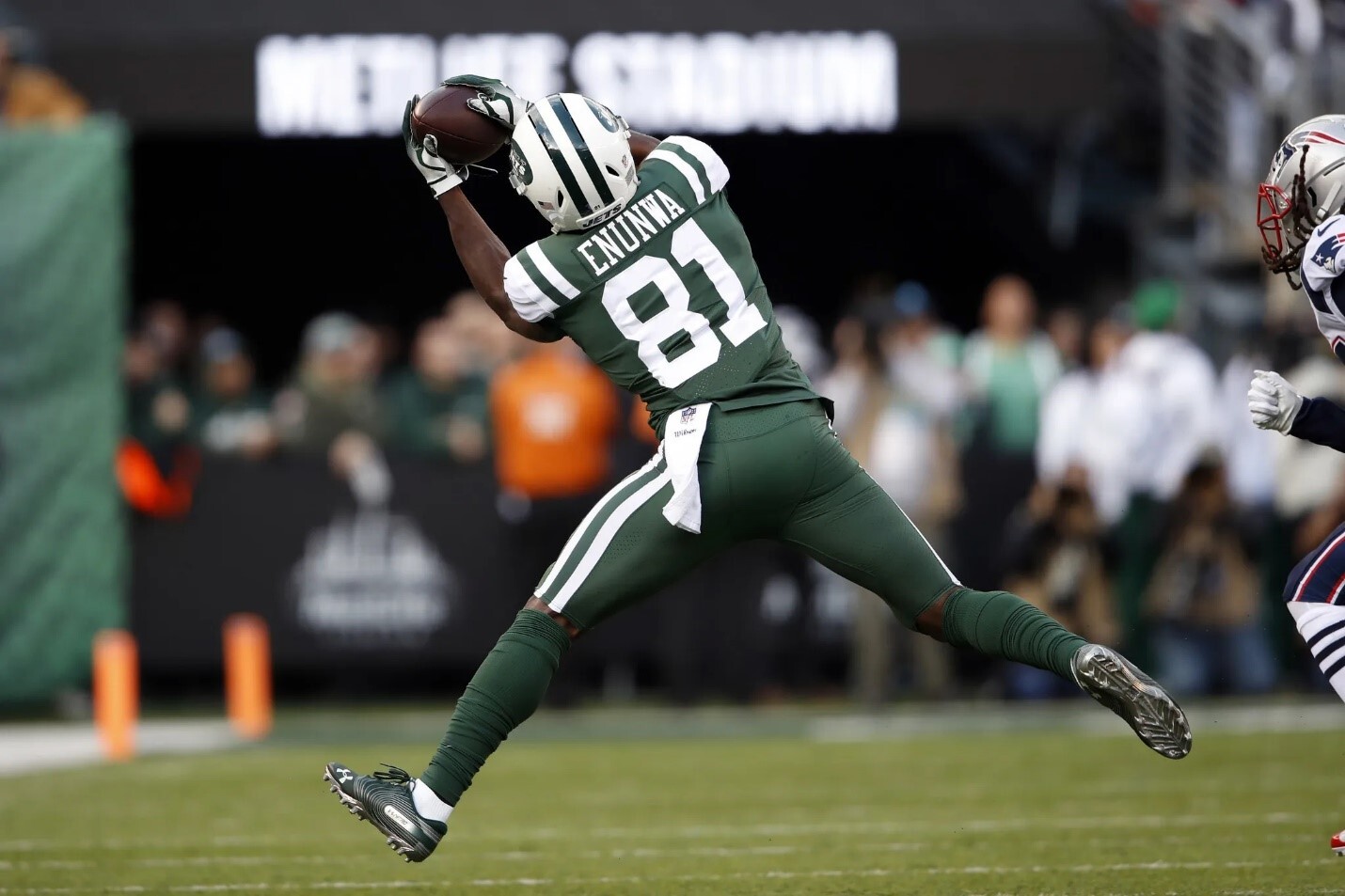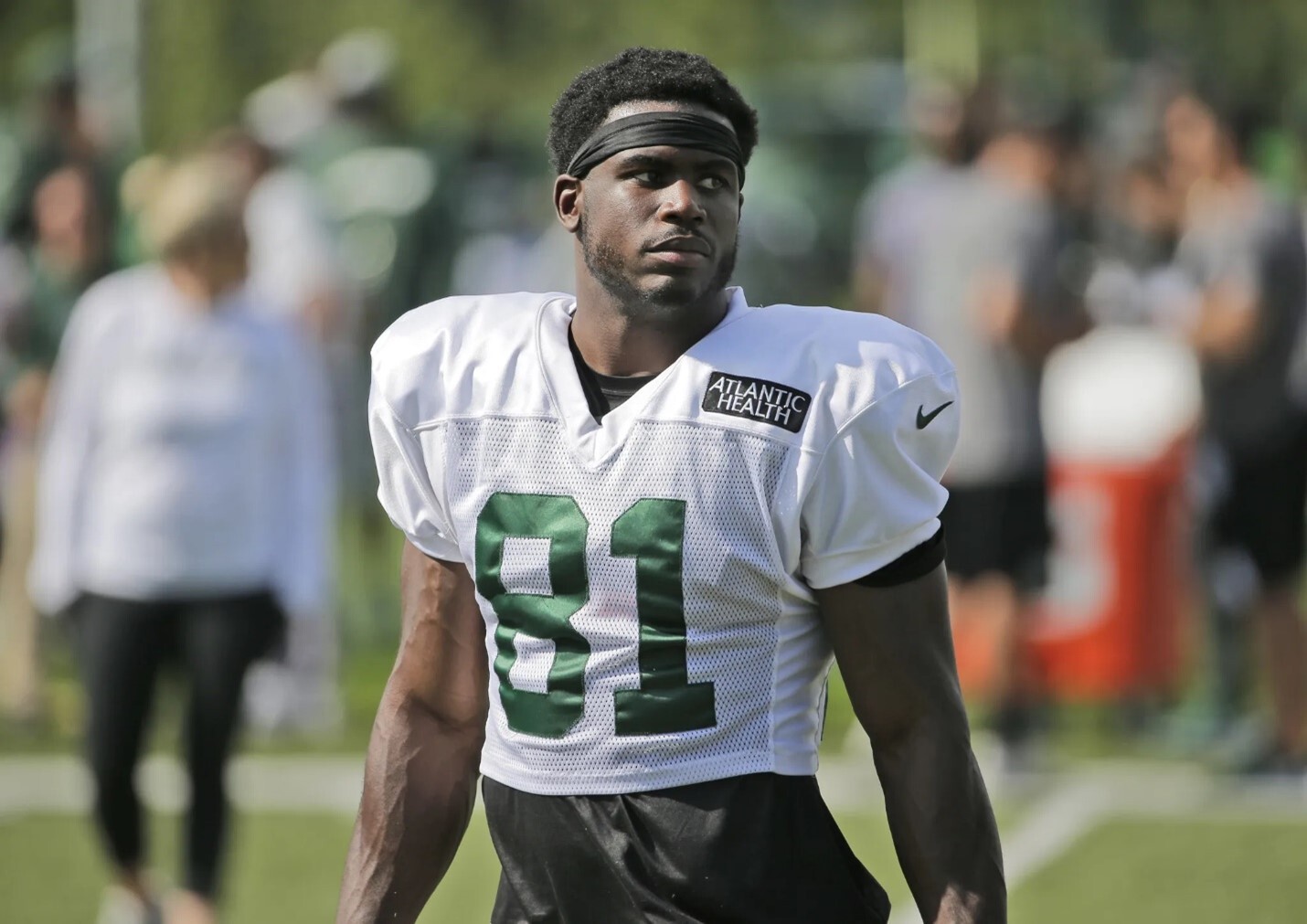
Catching Up With Former Player Rep: Quincy Enunwa
A former NFL wide receiver, Quincy Enunwa played 6 years in the league with the New York Jets. Quincy attended the University of Nebraska and broke multiple school records during his time playing for the Huskers. Following his retirement from football, Enunwa has remained active off the field through media work, youth coaching, and community service, and has also earned several humanitarian awards. We recently caught up with the 2014 draft pick and he gave us an insight into his life during and after football.

What inspired you to become a Player Representative?
I was voted in. I had no real idea what I was going to do until it happened. I went to the rep meetings, and I enjoyed the opportunity to go in and learn. Obviously, you get the vacation aspect of it too. Once I really learned, I became a lot more interested in it, and I think that my teammates saw that I was somebody that was willing to go and learn and I had already been a leader on the team. So, someone nominated me, and I ended up getting voted in as the main representative.
What lessons and experiences did you take away from being a Player Representative?
I think the biggest thing was just having the opportunity to see how diverse our locker room was. A lot of times, you're in the locker room and so you see the diversity, but you don't realize it until you get to serve the entire population. Having that opportunity to see what different people want and need was interesting because I was a rep during the last CBA negotiation. I had to really understand what my players needed and wanted. That was a really cool experience, but it was also eye opening because you really see how difficult it is to keep everyone happy. You also get to see the business side of it and see what all goes into it.
Why do you think more players should be involved or be active with the NFLPA?
It's important to be involved. It's important because you should want to know what's going on behind the scenes. It's one thing to just go through and enjoy the experience, but once you have that knowledge, it really reshapes the way you see it. I think that makes you operate in a different way. Everyone goes into it feeling like they have some power. They might change the way that they maneuver through this game because it's such a short amount of time, so we want to make as big of an impact as possible.

What is one piece of advice that you have for players who are transitioning out of the NFL?
I have two pieces of advice. Career-wise, or playing-wise, I would say collecting as much of your film as possible. That's your resume and it's also something that you want to be able to look back on when you're done. So, find a way to get all those different reps that you took that way, when you're done, you can relive those moments. You can celebrate the success that you had while playing. Off the field, I would say to create as many positive connections in your community and with your team as possible, because that is your network. When you're done playing you want to be able to tap into your network and give yourself more opportunities once you finish.
What's one piece of advice that you wish you got when you started your NFL career?
I would say one piece of advice would be to ask the position coach that you face for tips. If I had tried to tap the cornerback's coach, or someone to that effect, possibly the defensive coordinator, and asked them what they were seeing and what some of my tendencies were, that could have helped me become a better player during training camp, which would have made me a better player during the season. Sometimes training camp can turn into a big competition, but at the end of the day, we are all collaborating to become a team. So, I think that taking tips and pointers from other coaches would have helped me be a better player.
Now that I’m working with the team, I occasionally talk to some of the scouts that were there and ask them if any of the guys go up to them and ask them for tips. There are scouts for each position that are watching to see what each guy can improve on and see if we need to replace anyone. It would be helpful for guys to ask the scouts and coaches about what they need to get better at so that they aren’t blindsided when we tell them what they could have done better.
How do you feel that the lessons you learned playing football apply to your post-playing career?
The lessons I learned from playing football have definitely helped my post-playing career. I would say that the teamwork aspect has helped me a lot. Having the opportunity to be a leader has helped me because when I was a captain, I had to do more forward-facing speaking. Now in my current role as an analyst, I'm a little bit more comfortable standing in front of people and giving speeches. Whatever the case may be, because of my time as a player, being thrust into that role as a leader has made an impact on me.

What are you doing now in your career?
My main role right now is being an analyst. I do both pre-game and post-game shows for the New York Jets. I also do the Jets' off-season pre-game and post-game shows as well. I do a few other things too, like working on different investments and other opportunities. However, my main focus right now is being a broadcast analyst for the Jets.
What made you want to stay in a career that was sports related?
This isn’t the case for everyone, but it’s hard once you’re done playing to completely drop something that has been your identity for over a decade, or even two decades. I think it’s helpful to allow yourself to jump into something that helps you keep that part of your identity before transitioning to something else. For example, if I was a doctor, they train for years and years and gained so much knowledge and experience in that field, it would be hard to automatically switch careers and go do something else. I think it’s helpful to use what you’ve spent so much time on and bring that into your next career if you can, because it is already so familiar to you.
What does the NFLPA fraternity mean to you?
I think it means community. It provides me with an opportunity to be able to jump into a former players’ meeting in different cities that I go to, to be able to connect with guys. It allows me to have a group of men that have had similar experiences to me. When it feels like there is no one that I can relate to, I know that I have the former players in the NFLPA as people to lean on.